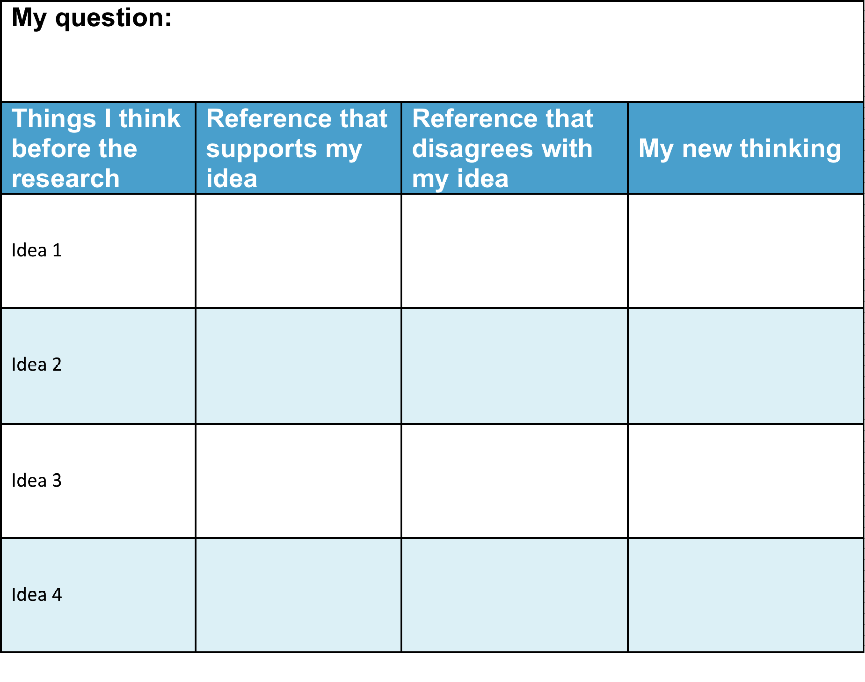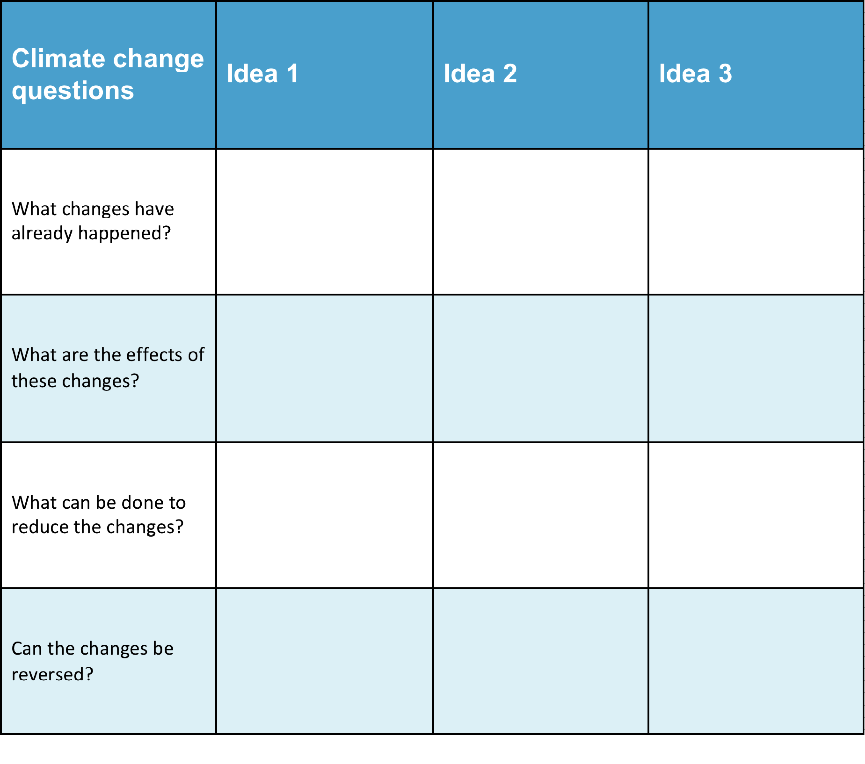Information for Teachers
Curriculum links
Australian Science Standards
ESS (ACSSU078) The role of the sun as a provider of energy for the Earth
SS01.8 Designing action for sustainability requires an evaluation of past practices, the assessment of scientific and technological developments, and balanced judgements based on projected future economic, social and environmental impacts
NDS (ACSHE081) Science provides the basis for decision-making in many areas of society and that these decisions can impact on the Earth system
New Zealand Science Achievement Objectives
LW: The impact of natural events and human actions on an ecosystem
LW: The importance of variation within a changing environment
NS: Scientists’ investigations are informed by current scientific theories and aim to collect evidence that will be interpreted through processes of logical argument
Helpful websites
You may want to direct your students to some or all of these websites to help with their investigations.
Find out what NASA has to say about climate change at:
https://climatekids.nasa.gov/climate-change-meaning/
National Geographic provides clear information about what climate change is, what it causes, and what people can do about it:
https://www.natgeokids.com/au/discover/geography/general-geography/what-is-climate-change/
The US environmental protection agency also provides information about climate change: https://www3.epa.gov/climatechange//kids/index.html
Students can search for climate change (for kids), global warming (for kids), greenhouse effect (for kids), pollution (for kids).
How to search the internet
1 Keep your request short
Fewer words will give a more accurate search.
2 Choose exactly what you want
For example: Arctic Circle Climate
3 Use quotes
Double quotes around a set of words tell the search engine to consider those exact words in that exact order without any change. For example: “Arctic Circle Climate”
4 Use the plus sign (+)
If you add a plus sign (+) between words, the internet will search for all the words. For example: migrate+birds+whales+mammal
5 Use the minus sign (–) to say what you don’t want
Use a minus sign (–) to show words you do not want to appear in your results. For example: if you search for burrowing animals and do not want mammals in your search, –mammals will exclude mammals. Note that you need to put a space before the minus sign for the word to be excluded.
6 Be very clear about what you don’t want
Part 1
Ask questions and make predictions
After reading Climate Change, you may have many questions about the earth’s climate and how the things people do are changing it.
List your questions
- Compare your list with questions that others have.
- Choose a question you would like to investigate.
- You can work alone, with a partner, or in a small group.
You may want to choose one or more of these questions to investigate
Q1. Why is climate change happening? Does it matter? If so, what can we do about it?
Q2. What has already happened because of climate change? Can these changes be reversed?
Q3. Focus on one particular aspect of climate change. Look at changes to weather patterns, changes in the oceans, changes happening in the Arctic or Antarctic, the effects on particular animals, and what people are doing to reduce human impact on the climate.
Go to Part 2 Plan and investigate →Part 2
Plan and investigate
Do searches in the internet or in books or talk to people who can help to find the information you are looking for.
Your teacher may suggest suitable websites for further information.
Go to Part 3 Record and analyse data →Part 3
Record and analyse data
Find a way of recording your information that will allow you to see any patterns in the data.
Think about what you are reading and how it relates to the ideas you had at the beginning.
Does what you are reading and seeing confirm your ideas or does it challenge you to change your thinking?
Data Chart for Climate Change
 Download Chart
Download Chart
Go to Part 4 Evaluate the information →
Part 4
Evaluate the information
1. Look over the information you have gathered and the patterns you have found.
What new information have you learned about climate change?
Have your ideas changed?
2. Search for other patterns.
3. Makes notes about what you find.
Go to Part 5 Communicate and share ideas →
Part 5
Communicate and share ideas
Look over all of the information that you have gathered in your investigation.
What are the most important ideas about your topic?
Make a chart showing the most important ideas.
Share any aspects of your thinking that have changed as you did your research. Discuss any new questions that you may like to research in the future.
 Download Chart
Download Chart
← Return to menu
